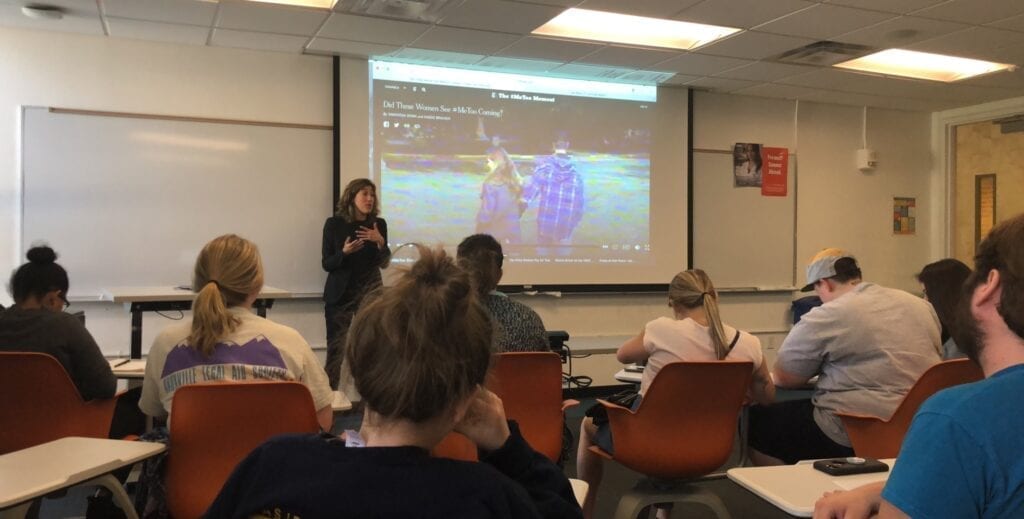Sex Week brings #MeToo Movement to UT
“If we want to change the conditions that allow sexual violence to flourish, we need to change the laws and conditions that promote the power disparity that enables it,” Berenstain said.

Harvey Weinstein used his power to manipulate young actresses. Even outside Hollywood, incidents of sexual assault between subordinates and superiors can be found across the board.
During this year’s Sex Week, Dr. Nora Berenstain of Tennessee’s department of philosophy spoke about the #MeToo movement and conditions that enable sexual violence.
Berenstain believes “power disparity based on conditions of vulnerability” to be the cause of the majority of sexual violence in our society. Simply, when someone has power or authority over another individual’s future, that power gives him/her control over the other person.
With entities exercising control over a person’s plausible future, power creates room for coercion. Superiors who exhibit controlling behavior include landlords, instructors, bosses and law enforcement officers.
Students in attendance also learned that 30 percent of exotic dancers and 24 percent of street-based sex workers who have been raped identify police officers as their rapists.
“If we want to change the conditions that allow sexual violence to flourish, we need to change the laws and conditions that promote the power disparity that enables it,” Berenstain said.
Society must also change treatment of victims. Ignorance to and failing to acknowledge the severity of the abuse “creates a hostile climate and emboldens abusers.”
Berenstain maintained that society must take reports seriously and encourage others to come forward. The only way to stop abusers lies in the truth, and victims cannot be ignored in order to reveal the truth.
Featured image by Catie Jett
Edited by Lexie Little

